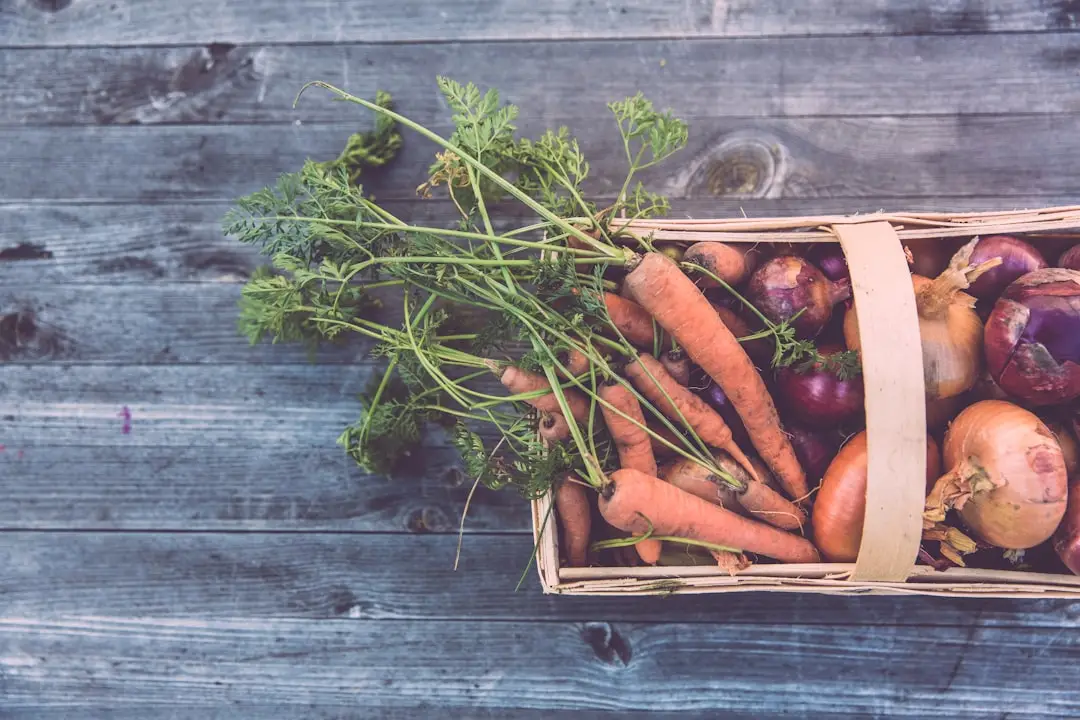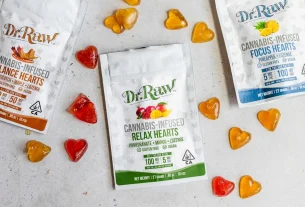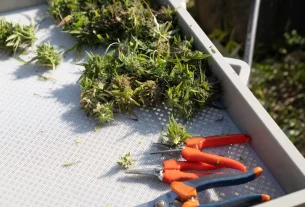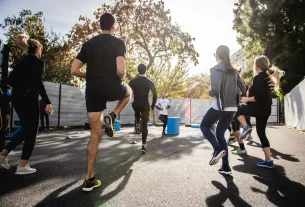Estimated Reading Time: 8 minutes
TTe word “detox” often conjures images of restrictive diets and complicated regimens.
But what if I told you that healthy ways to detox your body are actually quite simple and can easily integrate into your everyday life?
It’s not about deprivation; it’s about supporting your body’s natural detoxification processes.
This isn’t about quick fixes or fad diets; it’s about adopting sustainable habits that leave you feeling energized and vibrant.
Let’s explore some practical and effective strategies for a gentle, yet powerful, body reset.
The human body is a self-cleaning machine. Your liver, kidneys, skin, and digestive system work tirelessly to filter out toxins.
However, modern life, with its exposure to pollutants, processed foods, and stress, can sometimes overwhelm these systems.
That’s why supporting your body’s natural detox pathways is so crucial. Think of it like giving your engine a tune-up, not replacing it entirely.
One of the most fundamental healthy ways to detox your body is staying adequately hydrated.
Water is essential for flushing out waste and supporting kidney function. Aim to drink at least eight glasses of water daily.
However, your needs may vary based on your activity level and the climate you live in.
A simple way to monitor your hydration levels is to check your urine color – it should be pale yellow, not dark.
Consider infusing your water with slices of cucumber, lemon, or berries for added flavor and a boost of antioxidants.
I find that having a large water bottle always by my side helps me stay on track.
What you eat plays a significant role in your body’s ability to detox. Focus on a diet rich in whole, unprocessed foods.
This means prioritizing fruits, vegetables, lean proteins, and whole grains.
These foods are packed with essential nutrients and fiber, which aids in digestion and elimination.
Fiber is crucial for trapping toxins and moving them through your digestive system.
Think of your gut as a bustling city; fiber is the sanitation crew keeping everything running smoothly.
Limit your intake of processed foods, sugary drinks, and excessive amounts of saturated fats. These foods can burden your detoxification systems.
Here’s a list to get you started:
- Berries (raspberries, blueberries, strawberries): High in antioxidants and fiber.
- Leafy Greens (spinach, kale, collard greens): Packed with vitamins, minerals, and fiber.
- Cruciferous Vegetables (broccoli, cauliflower, Brussels sprouts): Contain compounds that support liver detoxification.
- Apples: A good source of fiber and pectin.
- Avocados: Healthy fats and fiber to keep you feeling full and satisfied.
Regular physical activity is another one of the healthy ways to detox your body.
Exercise not only boosts circulation and lymphatic drainage but also promotes sweating, which helps eliminate toxins through the skin.
Aim for at least 30 minutes of moderate-intensity exercise most days of the week.
This could be anything from brisk walking and jogging to swimming and cycling.

Even small bursts of activity throughout the day, like taking the stairs instead of the elevator, can make a difference.
I like to do a quick yoga session or a brisk walk first thing in the morning to energize my system.
Sleep is when your body repairs and regenerates itself.
During sleep, your brain clears out metabolic waste through the glymphatic system, often called the “brain’s lymphatic system.” Aim for 7-9 hours of quality sleep each night.
Create a relaxing bedtime routine, such as taking a warm bath, reading a book, or listening to calming music.
Minimize screen time before bed, as the blue light emitted from electronic devices can interfere with your sleep cycle.
A well-rested body is a body better equipped to detox.
Chronic stress can hinder your body’s detoxification processes.
When you’re stressed, your body releases cortisol, a hormone that can impair digestion and slow down elimination.
Practicing stress-reduction techniques, such as meditation, deep breathing exercises, or yoga, can help.
Even a short meditation session can make a difference in your overall well-being.
Find activities that help you relax and unwind, whether it’s spending time in nature, listening to music, or engaging in a hobby.
My go-to is always a long, hot bath with essential oils.
Certain foods and supplements can further support your body’s detox processes.
For example, cruciferous vegetables, such as broccoli and cauliflower, contain compounds that support liver detoxification.
Green tea is rich in antioxidants that can help protect against free radical damage. Consider incorporating these foods into your diet regularly.
However, it’s essential to consult with a healthcare professional before starting any new supplement regimen, especially if you have underlying health conditions or are taking medications.
It’s crucial to differentiate between what’s helpful and what’s hype; there’s a lot of misinformation out there.
Here’s a list of some foods which are known to aid in detoxification:
- Garlic: Contains sulfur compounds that support liver detoxification.
- Turmeric: An anti-inflammatory spice that can help protect the liver.
- Ginger: Aids digestion and reduces inflammation.
- Lemon: Rich in vitamin C, which acts as an antioxidant.
- Beets: Support liver health and detoxification.
There are several common misconceptions about detoxification.
One of the most pervasive is the idea that you need to go on a strict, liquid-only diet to “detox.” While short-term fasts may have some benefits, they are not a sustainable or healthy approach to long-term detoxification.
Additionally, many commercial detox products make unsubstantiated claims about their efficacy.
The best approach to detoxification is a holistic one that focuses on supporting your body’s natural processes.
I used to be skeptical about the whole idea of detox. I thought it was just a marketing ploy.
However, a few years ago, I started experiencing persistent fatigue and digestive issues.
After some research and conversations with my doctor, I decided to slowly incorporate some of these healthy ways to detox your body.
I began by simply drinking more water and adding a serving of leafy greens to my lunch and dinner. Slowly, I started to feel a shift.

My energy levels increased, my skin became clearer, and my digestive issues resolved.
This wasn’t some dramatic transformation, but a gentle, sustainable improvement in my overall well-being.
It reinforced to me how powerful small changes could be.
Dr. Emily Carter, a leading nutritionist and author of “The Detox Blueprint,” emphasizes the importance of a balanced approach.
“True detoxification is about supporting your body’s natural processes,” she says. “It’s not about quick fixes or extreme measures.
It’s about creating a lifestyle that nourishes your body, mind, and spirit.”
So, what are the key takeaways? Remember that healthy ways to detox your body aren’t about deprivation; they’re about nourishing your body.
Prioritize hydration, consume a diet rich in whole foods, engage in regular exercise, get enough sleep, and manage stress.
Avoid fad diets and commercial detox products that make unrealistic promises.
Instead, focus on making sustainable lifestyle changes that support your body’s natural detoxification processes.
Listen to your body, be patient with yourself, and celebrate the small victories along the way.
Your body is resilient, and with the right support, it can do amazing things.
By incorporating these simple yet effective strategies into your daily routine, you can gently support your body’s natural detoxification pathways and experience a significant improvement in your overall health and vitality.
It’s about creating a foundation for long-term well-being, not just a temporary fix.
Start today, and embrace the journey towards a healthier, more vibrant you. Ready to continue your wellness journey?
Join our newsletter for weekly health tips!
Frequently Asked Questions
Are detox diets necessary for a healthy body?
While short-term, restrictive detox diets are popular, they aren’t essential for a healthy body. Your body already has natural detox processes, mainly through the liver, kidneys, and skin. These organs constantly work to eliminate waste.
Instead of relying on extreme diets, prioritize a balanced lifestyle that supports these natural functions through healthy eating, hydration, exercise, and stress management. Focus on creating a sustainable approach rather than resorting to quick fixes that often lack scientific backing.
What are the key foods to include in a detoxifying diet?
A detoxifying diet should emphasize whole, unprocessed foods. Focus on incorporating fruits, vegetables, lean proteins, and whole grains. Specific examples include leafy greens, cruciferous vegetables (like broccoli and cauliflower), berries, apples, avocados, garlic, turmeric, and ginger.
These foods are rich in fiber, antioxidants, and nutrients that support liver function, aid digestion, and protect against free radical damage. It’s important to remember that no single food is a magic bullet, and a balanced dietary approach is key.
How can I incorporate exercise into my detox routine?
Regular exercise is a crucial component of a healthy detox routine. Aim for at least 30 minutes of moderate-intensity exercise most days of the week, such as brisk walking, jogging, swimming, or cycling. Exercise increases circulation and lymphatic drainage, aiding in the elimination of toxins.
It also promotes sweating, which helps to remove waste products through the skin. Even incorporating small bursts of activity throughout the day, like taking the stairs instead of the elevator, can be beneficial.
Remember to listen to your body and adjust your exercise routine as needed, always staying hydrated during and after your workout.
What about detox supplements? Are they helpful?
While certain supplements may claim to aid in detoxification, their effectiveness can vary, and scientific evidence is often limited.
Some supplements, like milk thistle or dandelion, have shown promise in supporting liver function, but you should always consult with a healthcare professional before starting any new supplement regimen. It is crucial to remember that supplements should complement, not replace, a healthy lifestyle.
Always focus on a balanced diet, sufficient hydration, regular exercise, and stress management, and be wary of unsubstantiated claims.



